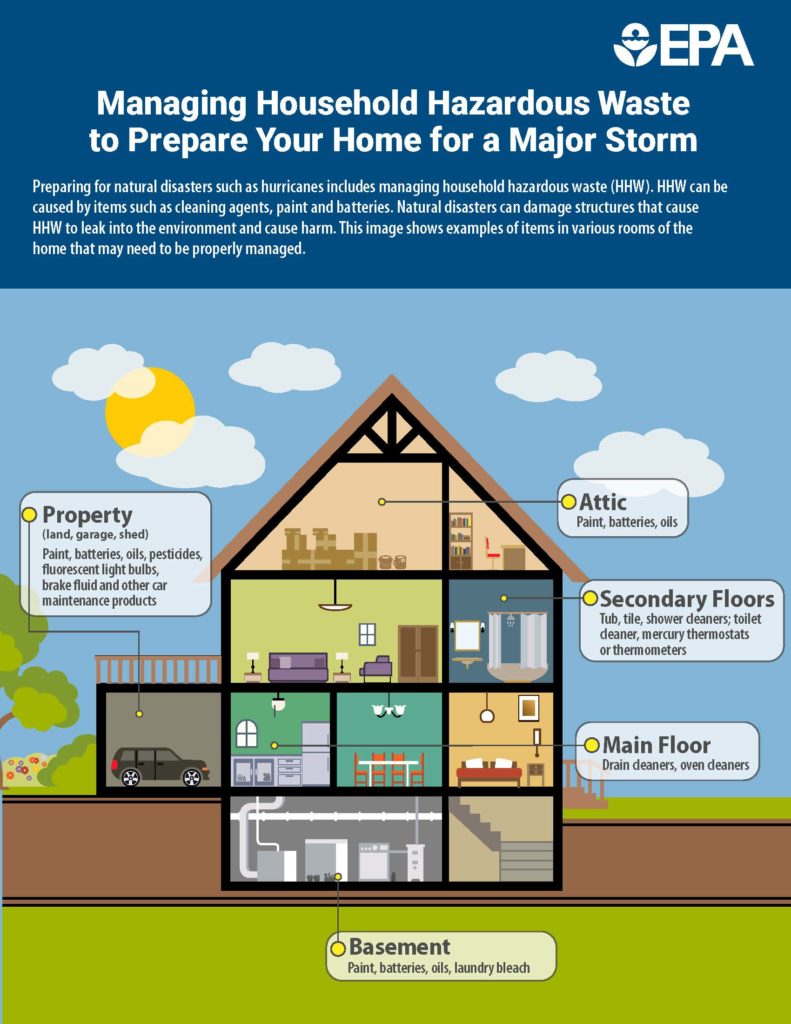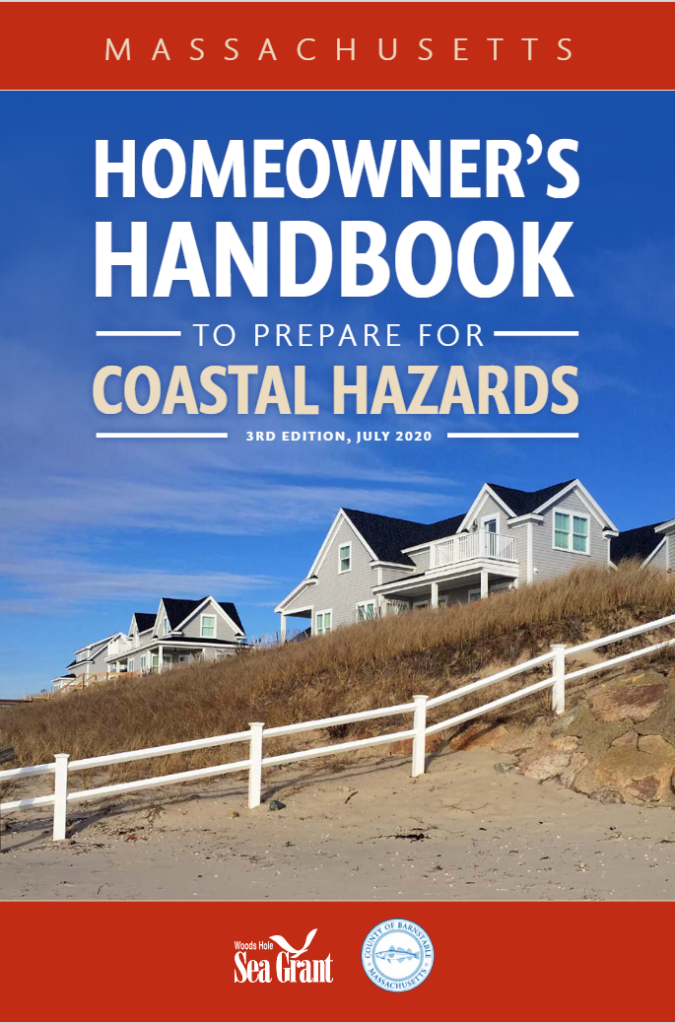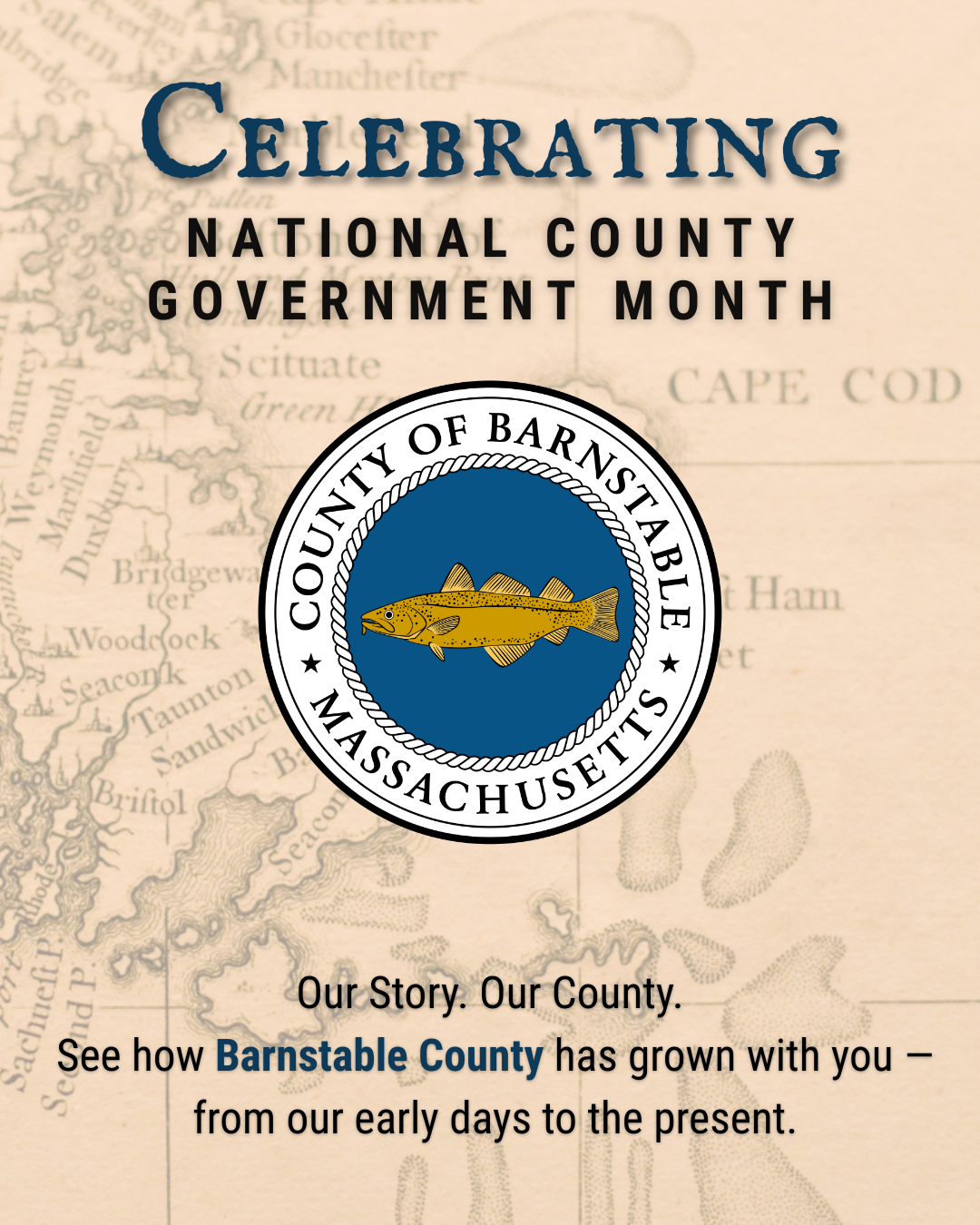
Flooding on Cape Cod: Are You Ready?
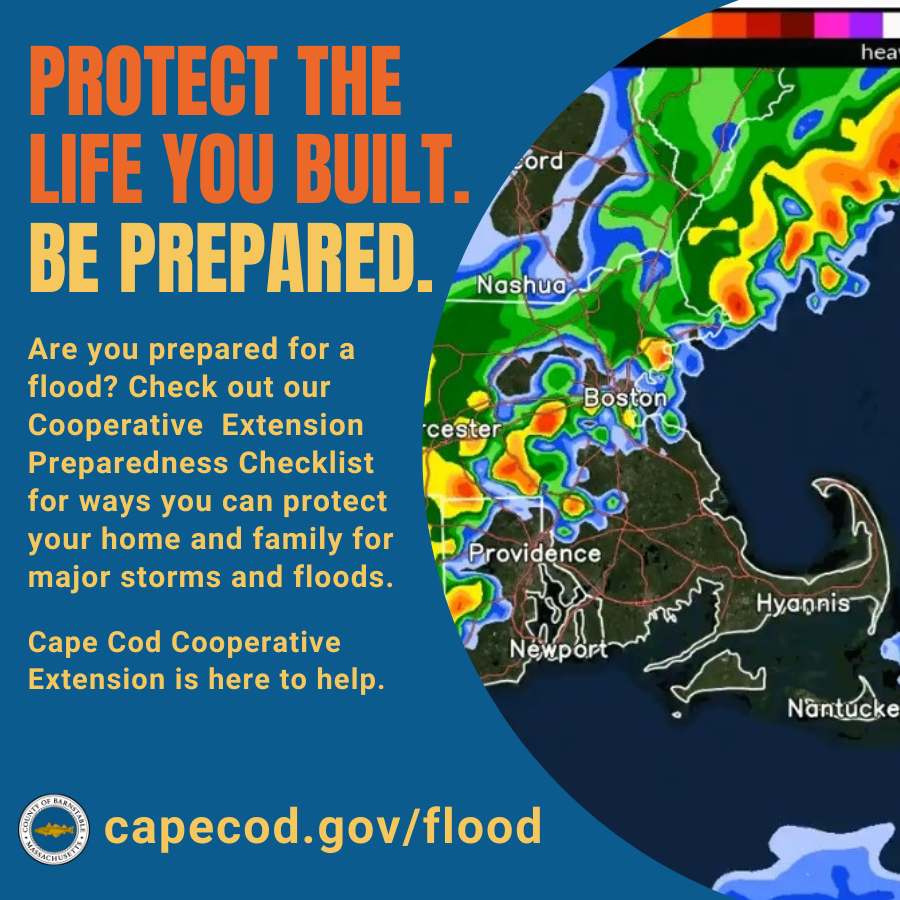
Rain, rain, go away! But if it doesn’t, are you ready to deal with the mess it might leave behind? Flooding isn’t just a coastal problem—if it rains, it can flood, no matter where you live on Cape Cod. Flooding is a reality here, but a little preparation can go a long way in keeping your family and home safe. The Cape Cod Cooperative Extension is here to help with resources, guides, and expert advice to make life better—even when the weather isn’t. Here’s what you need to know to keep your home and family safe.
Why Prepare for Flooding?
Floods can shut down roads, cut power, and turn your living room into a wading pool. Extreme weather doesn’t just disrupt your life—it can also cause expensive damage to your home and belongings. Taking steps now can save you time, money, and stress when the next storm rolls in. Think of it like buckling your seatbelt before hitting the road—it’s all about being ready for the unexpected.
How to Protect Your Home
Your home is one of your biggest investments, and a little prep can go a long way. Here’s how you can get started:
Make simple upgrades: Install sump pumps, elevate appliances, and seal cracks in your foundation. Small fixes now can save you big headaches later.
Check if you’re in a flood zone: Visit msc.fema.gov and type in your address. Homes in flood zones have a 26% chance of flooding over a 30-year mortgage—that’s like flipping a coin every few years.
Purchase flood insurance: Did you know most homeowners’ insurance doesn’t cover floods? Flood insurance takes 30 days to kick in, so don’t wait until it’s too late. Learn more at floodsmart.gov.
Get the Resources You Need
We’ve teamed up with Woods Hole Oceanographic Institution Sea Grant to bring you two free, easy-to-use guides:
Resource Guide to Flood Insurance and Protecting Your Home and Business
This quick-reference trifold brochure helps you navigate flood insurance and other protective steps. Access it here.
Massachusetts Homeowner’s Handbook to Prepare for Coastal Hazards
Packed with cost-effective tips to protect your home and family, this guide is a must-read for every Cape Cod homeowner. Download it here.
Plan Ahead for Your Family
When storms hit, knowing what to do can make all the difference. Your emergency plan should include:
- Receive Massachusetts Emergency Alerts: get familiar with the 2-1-1 Hotline.
- Disaster Kit Contents
- Family Emergency Plan and Communication
- Financial Preparedness: Gathering Financial and Medical Records, and Safeguarding Documents.
- You Are The Help Until Help Arrives: First Aid Care.
Food Safety Prep: Learn how to handle food and water safely during power outages and floods. Check out our handy guides below:
- Prepare Yourself Before Power Emergencies
- Power Outages: During and After
- If Flooding Occurs: Keeping Food and Drinking Water Safe.
- About Foodborne Illness: Symptoms and What to Do.
Eating Safe After a Power Outage: Click here for the printable flyer, Eating Safe After A Power Outage | Consuma alimentos seguros despues de un corte de electricidad | Sekirite Manje Lè Gen Pann Kouran | 停电后保持食品安全 | An toàn thực phẩm trong trường hợp mất điện | السلامة الغذائية عند انقطاعات التيار الكهربائي
Don’t drive in flooded areas — turn around, don’t drown!
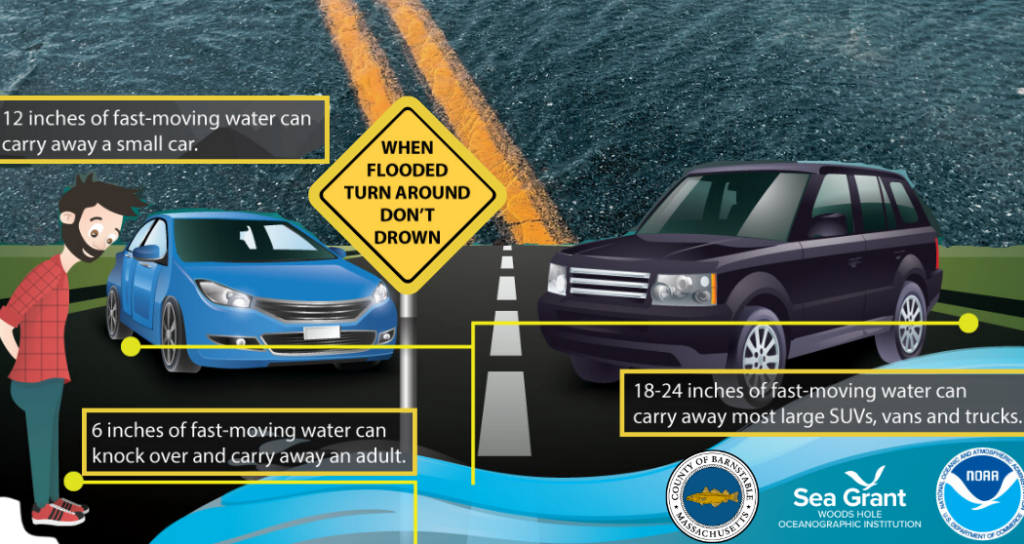
Floodwaters: More Dangerous Than You Think
- Six inches of moving water can knock you down.
- Twelve inches can sweep away a car.
- Even SUVs and trucks aren’t safe—two feet of water can carry them off.
It’s never safe to walk or drive through floodwaters.
Hidden Dangers of Flooding
- Roads may collapse under water.
- Standing water is a hazard for kids.
If flooding is possible, remove hazardous chemicals like fuel, cleaners, or yard products from your car. These can contaminate the water, harming the environment and drinking supplies.
Floodwater is like a bad spill—it spreads fast and creates a huge mess. Stay safe and never underestimate its power.
Protect Your Family and First Responders from Household Hazardous Waste.
What’s Household Hazardous Waste (HHW)?
Household items like oil-based paints, cleaners, and pesticides contain toxic chemicals that can harm your health and the environment. These are called Household Hazardous Waste (HHW). If not stored or disposed of properly, they can react, leak, or even explode—especially during storms—putting your family and first responders at risk.
Safe Storage Tips
- Keep it high, but not too high: Store hazardous products above flood levels, but never above eye level to avoid spills.
- Out of reach: Make sure they’re safely stored away from kids and pets.
- Flammable? Use flame-retardant containers, like metal trash cans with lids.
Think of storing these items like handling matches—one mistake can cause serious trouble!
How to Dispose of HHW
Not sure what to do with old or unused chemicals? Barnstable County runs HHW Collection Events from spring to fall.
- Your town’s schedule will be posted in early early spring: Click here.
- Need off-season help? Contact Kalliope Chute, Hazardous Materials Specialist:
📞 508-375-6699 | ✉️ kalliope@capecod.gov
For more info, visit the HHW webpage at www.LoveYourLocalWater.org
Pro Tip: Take inventory!
Check your home for hazardous products and note where they’re stored. This storage map can help you stay organized and prepared.
